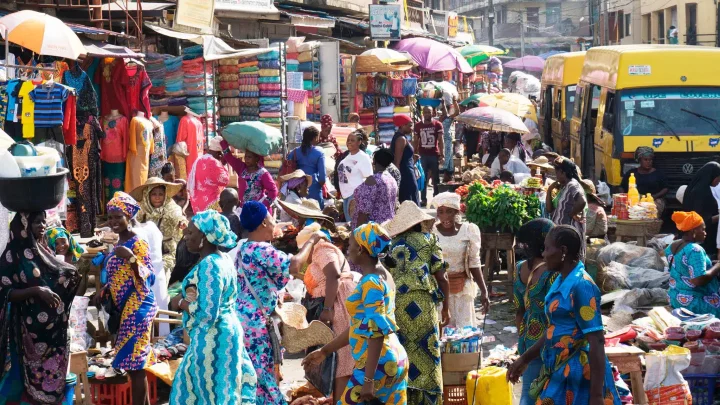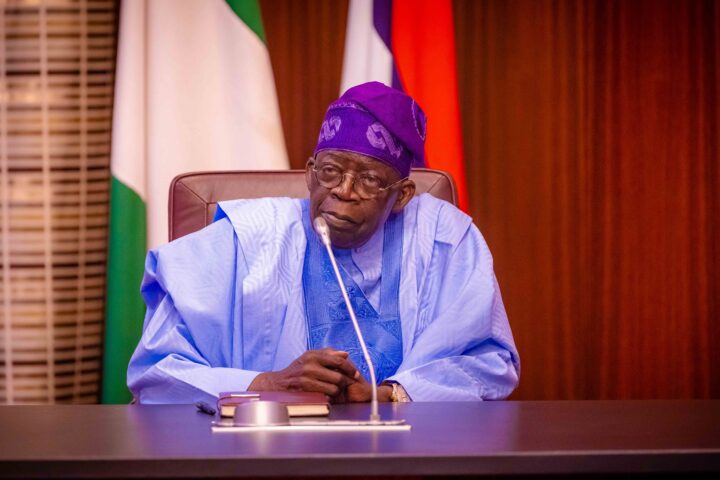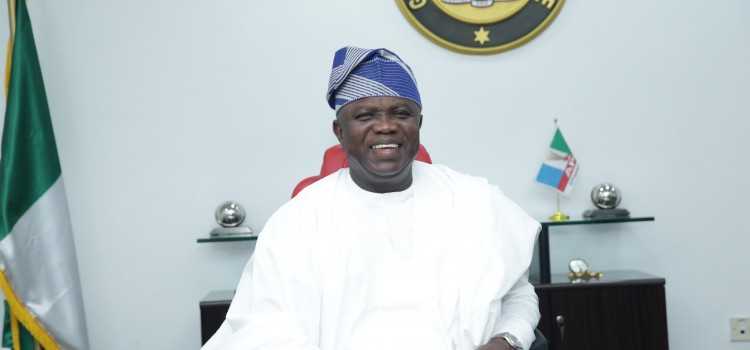I had written most of this article but kept the same in abeyance for some time as I prioritised other thoughts. However, I came across a recent article by Zachary Taylor in The New Yorker, titled ‘What if We Are Thinking About Inflation All Wrong?’, which offered new insights into the subject matter and which validated some of my earlier thoughts – especially that we need to broaden out our inflation management strategies.
I think Nigeria has been rather inactive in managing inflation. We have been applying only the orthodox approach which is all about increasing monetary interest rates. As much as we have increased the monetary policy rates by 5.5% in the last 12 months, inflation has climbed rather steadily to 22.22% today, with a slight dip some months back, followed by steady rises. Apparently, that strategy has been suboptimal.
The article I refer to was written around the work of Isabella Weber, an economist who in the thick of the Omicron/COVID-19 scare in 2021 had written in the Guardian of UK suggesting that countries may consider some sort of strategic price control as they had in similar times in the past – notably during and after the Second World War. She suggested that conditions under Covid were the same as that of a world war. The article was not taken lightly in academic circles, with Nobel Prize winner Paul Kruger calling it “truly stupid”. Others called it ‘unsound’ and other very flowery names.
The article, which relied very much on history (I had written in the past about how Economics as a field of study swore off history to its own detriment), noted that there was high consumer demand for goods, record corporate profits, production bottlenecks in that era when the world was trying to recover from COVID-19, just as happened as the world recovered from WWII. I would add that Nigeria – and most African countries – are in that exact same position (permanent chaos), and should not be prescribed with same medications as plateaued, stable Western countries – like this idea that by tweaking interest rates, inflation will fall. It just has not.
Advertisement
For a better perspective, the Office of Price Administration prohibited companies from raising prices above certain levels in the period referenced. Companies that violated were threatened with prosecution or worse. In fact, the National Guard removed Sewell Avery, chairman of Montgomery Ward, a department store chain who refused to toe the line. In that time too, interest rate management of inflation had failed, creating higher unemployment, lower productivity, and making it harder for the military to obtain equipment/supplies for the war. The price caps, rather than ruin companies, encouraged them to produce more to meet profit targets. They, therefore, had to employ more people, thereby keeping the economy robust through the remainder of the war with American wartime inflation steadying 2% as against World War 1 when things went haywire.
Weber notes that even today, in a host of key sectors, the same strategy has been deployed post-Covid. Hear her: “The European Union is regulating the price of natural gas, the Biden Administration is regulating the price of gas (petrol), and the G-7 is enforcing a global cap on the price of petroleum products produced in Russia (as part of their support for Ukraine, but price regulation all the same)”. Zachary Taylor’s article goes further: “Inflation in the Western world appears to be cooling today and by nearly every measure we are living in the best labour market in a quarter century… In February, the European Union began implementing a separate price cap on natural gas that applies to the entire Eurozone…Late last year, the G-7 implemented a global price cap on Russian oil — an effort to keep Russian energy flowing to developing nations that rely on it while limiting the Russian government’s ability to profit. In the first few months of 2023, Russian oil revenues were down forty percent”.
Weber’s research centered around what she termed “sellers’ inflation”. Her work revealed that despite $4 trillion spent on COVID-19 by Trump, and another trillion since Biden, “most inflationary pressures came from large spikes in the prices of specific products and commodities such as natural gas. By 2022, the ongoing chip shortage had resulted in the fewest annual sales of new cars in more than a decade. Still, profits were up—car companies posted their best earnings in six years”. How did car companies post best-ever profits with fewer car sales?
Advertisement
She also noted that “the higher upstream the supply disruption, the greater the ultimate impact on consumers. Raise the price of electricity or oil, for instance, and suddenly everything becomes harder to make or move. The same is true for chemicals, metals, lumber, or any of the basic commodities required to produce more complex products. If a government could somehow prevent the price of these magnifiers from getting out of hand, it could stave off inflation… corporate profits are a key driver of today’s inflation is now openly embraced by the establishment on multiple continents. Researchers at the Kansas City Federal Reserve recently concluded that corporate price markups may have accounted for more than half of the inflation experienced by the US in 2021”.
Things have turned around for Weber. Today, she is feted by Bloomberg, US Congress, Financial Times, Washington Post, European Central Bank, etc. Paul Kruger apologised to her openly in January 2023.
I have quoted extensively from the article because many readers will be wont to dismiss this new bent of research. One thing is for sure. The ignorance of history has become the undoing of economics – especially for countries like Nigeria.
I will now move on to other strategies beyond interest management that we could use to wrestle down our soaring inflation – which is expected to soar some more with the removal of fuel subsidies and the attendant price gouging (when companies and retailers add more to their prices beyond the effect of the fuel price increase).
Advertisement
Other strategies aside from interest rate manipulation
Whereas 2% – 4% inflation is considered to be healthy inflation (for matured economies), and we may run up to say 6% – 8% in our economy without any sense of panic, the Central Bank of Nigeria has set its inflation target at anything below double-digit. Let’s call that 9%. We are thus 13% above this target.
How else can we force down inflation? And what latitude can we entertain especially because high rates of inflation also usually come with high GDP growth rates? The contention for me is that we should target much higher rates of growth in our GDP than the 2%-3% that we are doing and projected to do presently. It’s actually quite depressing when one sees such projections. Can we accommodate lower double-digit inflation as a price for much higher GDP growth rates? The new administration has gone all out to promise a GDP growth rate of between 8% to 10%. How can we achieve this without letting inflation run away any further?
I believe it is achievable though but that will require us discombobulating where our 22.22% inflation is coming from. First off, growing the economy much faster simply means getting rid of inefficiencies, ensuring that people actually get productive for whatever salaries they are paid, improving capacity utilisation in industries, getting companies to grow, encouraging new productive ventures, and generating considerable productive buzz in an economy.
Advertisement
We can look at other economies that have achieved this to be able to get an idea of what it takes. Many such countries – like China, India, and even other African nations which have grown at about 8% for some years, such as Cote D’Ivoire, Senegal, Egypt, and Ethiopia – saw real investments in infrastructure, evidencing healthy growth rates. I believe a focused leadership, resolute in enforcing a level of discipline, punishing and rewarding promptly to signal its direction, and with adequate performance monitoring of all sectors and its targets can put Nigeria on this same track.
The Central Bank of Nigeria, through its monetary policy committee (MPC), has adopted an orthodox approach permanently by continually increasing interest rates. Perhaps that’s the best the CBN can do, or else it is accused of extra-monetarism. The textbooks say once general interest rates are increased, inflation will slow down because people are better incentivised to save money, and to borrow less, thus money in circulation reduces and inflation follows suit.
Advertisement
However, in our recent case, the higher the MPC increases rates, the higher climbs inflation. Some of us have been telling the believers in orthodox ideas that there is a need to consider the peculiarity of an economy, and indeed the peculiarity of circumstances, in making economic policies. Also, there is a need to assess policies and change course where necessary.
At the end of the day, manufacturers and borrowers in general are having to pay more for funds and are finding every way of passing higher costs to hapless final consumers. It has been documented that by taking such an approach, a central bank could actually instigate an economic recession. If interest rates continue to climb, rather than slow down inflation, it increases inflation because producers pass on the cost and it gets to a point where the spiral becomes uncontrollable and the economy is thrown into a panic. We may thus see mass layoffs, higher unemployment, company closures and what have you – symptoms of an economic recession. My advice in this regard is that the MPC slows down on this unworkable orthodox policy and looks elsewhere in a more empirical manner.
Advertisement
Below are other options, some of which I don’t believe we are using yet, or using effectively in Nigeria:
- Moral suasion and logic: On April 26, 2023, Huw Pill, the chief economist of the Bank of England made a controversial statement that Brits should accept already that they are poorer. He said people should stop demanding pay raises and that companies should stop passing increasing fuel costs to consumers just because they can. He faced some backlash, but what he intended to address is that inflation in the UK, which is at 10.1% still, is feeding on itself like a monster. Even the former governor of the Bank of England – Andrew Bailey – had said such a thing before. What is important to note here is that irrespective of interest rate increases, inflation can feed on itself through the actions of economic players – in this instance anxious workers and retailers, even manufacturers. Is there value in persuading economic players not to be too reactionary and for retailers not to take undue advantage by gouging prices in an economy like ours? I think there is. But who is talking about this kind of issue presently? Nobody. Nigeria is a place where bus drivers increase fares by 100% because government adds 10% to fuel prices. We don’t do things in bits but in leaps and bounds. Even the Buhari government – in the middle of all the revenue tightness – was mulling (or has already commenced depending on which media you read), a whopping 40% in the salaries of civil servants, many of whom don’t even show up for work. The Trade Union Congress is asking for a minimum wage of N200,000! That will be a seven-fold leap. The Bank of England’s chief economist, as well as its former governor, called this phenomenon ‘pass-the-parcel’. As much as people have excoriated them, no one has disagreed with the logic that the inflation Ponzi must stop at some point in time. We have to stop digging the hole we are all in at some point. The obsession of central banks with interest rates though stems from the idea pushed by Milton Friedman, the economics guru who died in 2006, when he asserted that: “Inflation is always and everywhere a monetary phenomenon”. Ehmm…no, it is not. We have to think hard to solve our problems.
- If we consider where Nigeria’s inflation is coming from – with a major portion stemming from food inflation – we will most likely conclude that we have cost-push inflation. This means that sellers are passing on the higher cost of bringing goods to the market. However, if we are honest, we will find that Nigeria’s inflation is a multi-variable phenomenon — cost-push, illegal money in the hands of many people, bad data as a result of a large informal economy, inflation from our import-intensive economy, and price gouging by those who can exploit consumers. We should understand that Nigeria’s economy is a very loose system where people get away with all sorts. So, is there any direct intervention that can be made in the agricultural sector to slow down food inflation? That will require a careful and deliberate walk-through of the entire value chain. It is not enough to throw money at the problem by way of intervention funds, a lot of which goes to waste. A multi-sectorial approach is required, with strong executive leadership. We have no excuse for food inflation to be so high on a month-on-month basis. If we could intervene and begin to work down food and other inflation, this will have an immediate effect on our overall headline inflation numbers. We cannot afford to leave every sector to the shenanigans of players in such a growing economy. Perhaps direct government interventions to assuage the agonies of our farmers and transporters will help to tame general inflation.
- Supply-side policies: Policies to increase the competitiveness and efficiency of the economy, putting downward pressure on long-term costs – At the end of the day, competitiveness and better regulation of sectors within the economy, are what guarantee the strength of an economy. Deregulation of markets is not the application of laissez-faire policies where anyone does what they like, but better, more transparent, and more scientific policies and regulatory approaches. This will then ensure that sellers in an economy think twice before playing games. Overall, too, the leaders in an economy have to be able to reduce the rat race by which people chase more money and more advantages for themselves no matter whose ox is gored. In most of Europe, people have since got to that level. Ditto in America. I also recently ran into a young friend who japa-ed to nearby Rwanda. He arrived with $50 and today is finding his feet better than he did here. He is helped by the Nigerian can-do spirit which comes with a large dose of desperation. But he also talks of how the average Rwandan is quite content. He is finding out that the blind race we run in Nigeria may not be worth much. There has to be a midpoint. Here we are in Nigeria and our young ones daily bash the country and everyone is seeking to outdo the other. Perhaps we have a problem with the underpinning philosophy that guides the country. Life is short. It cannot be all about acquiring money by every means.
- Fiscal policy: A higher rate of income tax could reduce spending, demand, and inflationary pressures. This is another approach to curbing inflation. Whereas Nigeria may not raise taxes at this point, what I propose we do is get serious about enforcing government revenue. The CBN is increasing interest rates in a desperate but thus far futile bid to slow down inflation, whereas the fiscal sector merely wrings its fingers at our low revenue-to-GDP ratio. I believe the former minister of finance must have given up since no support came from a disinterested president. There is a large room for tax compliance in Nigeria. And we are not talking about just taxes, but every revenue accruable to the government – rents, rates, duties, fees, fines, levies, and what have you. We cannot run such a slack society and expect glory to abound. Also, there is no basis for reducing government expenditure at this point. Our people’s standard of living is yet so low, such that government must have a mindset to spend more – on education, health, security, infrastructure, electricity, and rail networks. However, the efficiency of this spending is what matters. Are we getting value for money? Is the spending getting to the people? Are we empowering Nigerians? If viewed this way, we will not be powering up unproductive inflation, but rather growing the economy (GDP). The real problem we have had in Nigeria is low growth and very high inflation. Growth must ramp up, while inflation goes down. As difficult as it may look, this is the only way forward that can be achieved through sincerity and deep thinking.
- Reduce expectations: According to Lee, Powell, and Wessel (2020), writing for the Brookings Institute: “A key determinant of inflation over time is inflation expectations. If people expect inflation next year, firms will put up prices and workers will demand higher wages. This expectation tends to cause higher inflation. If the central bank and government can effectively reduce expectations by making credible threats to bring inflation under control, this will make their job easier”. This is related to the moral suasions mentioned above, as it deals with the psychology of inflation. Information and expectation management is key, not just firefighting after the fact. However, the government must not only be heard giving a “credible account of what it intends to do but it must also be seen to be acting rightly too, for enhanced credibility”.
- Reform the tax code to raise more revenue: In Nigeria, this is a core imperative. One of the factors driving inflation is the large informal economy and the fact that government is unable to properly trace in whose hands the liquidity is. We run an incredibly loose economy where everything goes and people easily ignore their obligations to the state. Of late, the government is struggling to reform aspects of the tax laws. Not only does Nigeria need the revenue for infrastructural development, but we also need to tighten tax laws, make taxes more progressive to benefit the more vulnerable in society and rein in government revenue of all types in order to slow down the velocity of bad money in the economy and thereby tame inflation. So, in this manner, fiscal policy helps monetary policy to slow down the inflation rate.
- Promote work, savings, and investment: Increased labour supply, capital supply, productivity, and personal savings can help to reduce inflationary pressures. The Nigerian government and indeed her people tend to focus only on ‘graduate unemployment’ but usually, that is like treating symptoms. We should promote work with our teenagers, and also incentivise companies to employ people. Whereas this looks like pushing more money out through salary payment thereby increasing money supply, this will help in reducing the impact of inflation on the most vulnerable in society and in lowering inflation rates faster. ‘Good’ money velocity is great for an economy. At the same time, if the government is able to expand employment, it should also promote savings and investments say by issuing more domestic bonds, which will help to mop up excess money in circulation. The upshot of this is to create economic vibrancy, not just to lock down the economy by pursuing inflation. Indeed, my position is that growth and development should be our objective, and in achieving growth, we must have to necessarily see inflation spike.
- Government must also do what it can to influence general price levels within its purview. This includes helping to lower energy costs by promoting alternative sources of efficient energy. Electricity has been rightly noticed – even fetishised – as the main issue facing Nigerian businesses. Even banks say that their interest rates are so high because of the cost of energy! As we can see in the American example, energy cost is one of those costs that permeate into every other price increase and a good excuse for spiking inflation. It needs to be wrestled down. Further, the government must urgently deal with insecurity which adds considerably to the final prices that consumers pay for everything, reducing tariffs on essentials, promoting local production of basic essentials, and import substitution. A focus on infrastructure – like roads, rail systems, and inland waterways helps to reduce the cost of transportation of people and goods, and thus sellers have fewer excuses to keep increasing prices in the name of recovering costs. Of course, governments have been investing in infrastructure from time immemorial, but corruption and inefficiencies mar the gains for the people. Also, communication has been inefficient. Governments usually forget to link infrastructure to the lowering of inflation. They forget to ask citizens to take a medium to long-term view of their efforts as part of the expectation management strategy.
I think the essence of this article is to get us to have a broader view of the phenomenon of inflation and for government operatives to adopt a multidimensional and multisectoral approach to taming the problem. For now, it looks like only the monetary approach is being utilised out of all of the above, and it clearly is not delivering.
Advertisement
Views expressed by contributors are strictly personal and not of TheCable.
Add a comment







